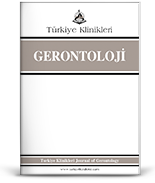Son yarım asırda toplumumuz, insan yaşamının tüm alanlarını içine alan sürekli bir değişime maruz kalmaktadır. Yaşamımızın seyrinde önemli bir zaman işgal eden iş yaşamı kadar hem demografik değişim hem de geleneksel toplum değerlerindeki değişim nedeniyle bunun dışında kalan zamana ait değerlerde farklılaşmıştır. Zaman kavramı ve algısı aynı değildir. Kişiye ya da duruma göre anlamı başkalaşmaktadır. Dolayısıyla bireyin yaşam seyri içinde hareket ettiği alanlar değiştikçe zamana ilişkin anlamda değişecektir. Örneğin zamanın anlamı yaşlılar için gençlerden, emekliler içinse çalışanlardan oldukça farklıdır. Boş zaman kavramı sanayileşmeyle birlikte şekillenmiş, mesai öncesi, sonrası, resmî tatil, hafta sonu tatili ve emeklilik gibi kavramlara atıf yapılmıştır. Emeklilik öncesinde kısa süreli, kolay doldurulan ve arzu edilen bu boş zamanlar, emeklilik sonrasında ekonomik, sosyal ve sağlığa ilişkin sınırlılıklar nedeniyle arzu edildiği gibi değerlendirilemeyerek 'boşa giden' zaman olarak olumsuz bir anlam kazanabilir ve bireyin yaşam memnuniyetini azaltabilir. Bu nedenle yaşlılıkta boşalan zaman gerontolojik açıdan ele alınması ve gerekli intervensiyonlarla anlamlı hâle getirilmesi gereken önemli bir konudur. Yapılan müdahalelerin bireylere fiziksel, sosyal ve psikolojik anlamda fayda sağlamasının yanı sıra makro düzlemde toplumsal iyiliğe katkı sağlaması diğer önemli çıktısıdır. Bu makale giderek yaşlanan toplumumuzda genç emekliler ve yaşlılar bağlamında 'boş zaman' kavramını ele alarak konuyla ilişkili bazı noktalara dikkat çekmeyi ve gerekli müdahalelerin planlanmasında göz önünde bulundurulmasını hedeflemiştir.
Anahtar Kelimeler: Yaşlanma; yaşlı; emeklilik; boş zaman aktiviteleri
During the last half of the century, our society has been subject to a constant change that includes all areas of the human life. Due to changes in business life which occupies an important time in the course of our lives, as well as demographic change and the change in traditional society values, the values of the time one has outside of these have also changed. The concept and perception of time are not the same. Its meaning differs depending on the person or the situation. Therefore, as the areas in which the individual moves in the course of their life change, the meaning of time will also change. For example, the meaning of time is quite different for the old from the young, and for the retired from the working one. The concept of free time has been shaped with industrialization and references have been made to concepts such as before and after working hours, public holidays, weekend breaks and retirement. These short-term, easily filled and desired free times before retirement may not be used as desired due to economic, social and health-related limitations after retirement, and may gain a negative connotation as 'wasted' time and lessen the individual's life satisfaction. Therefore, the newfound free free time acquired as one ages; is an important issue that needs to be addressed from a gerontological point of view and made meaningful with the necessary interventions. These interventions can provide physical, social and psychological benefits to individuals as well as contributing to overall well-being of the society at the macro level. This article aims to draw attention to some relevant points about the topic and to consider them in the planning of necessary interventions by addressing the concept of 'free time' in the context retirees and the elderly in our aging society.
Keywords: Aging; aged; retirement; leisure activities
- Martin M, Kliegel M. Psychologische Grundlagen der Gerontologie. 1st ed. Stuttgart: Kohlhammer; 2005.
- Witterstätter K. Soziologie für Altenarbeit-Soziale Gerontologie. 13th ed. Freiburg im Breisgau: Lambertus; 2003.
- Heinze RG, Naegele G, Scheneiders K. Gümüş Ekonomisi, Bir Alman Vakası: "Aktif Yaşlanma" ve "Yaşlıların Üretkenliği" İçin Yeni Bir Eylem Alanı mı? Tufan İ, Durak M, editörler. Gerontoloji: Kapsam, Disiplinlerarası İş Birliği, Ekonomi ve Politika. Cilt 1. 1. Baskı. İstanbul: Nobel Yayıncılık; 2017. p.411-39.
- Kruse A, Wahl HW. Zukunft Altern-Individuelle und gesellschaftliche Weichenstellungen. 1st ed. Heidelderg: Spektrum Akademischer Verlag; 2010.
- Türkiye istatistik Kurumu (İnternet). Haber Bülteni: İstatistiklerle Yaşlılar, 2021. (Yayım tarihi: 18 Mart 2021). Erişim tarihi: 21 Ağustos 2022, Erişim linki: [Link]
- Tufan İ. Birinci Türkiye Yaşlılık Raporu. 1. Baskı. Antalya: GeroYay; 2007.
- Grymer H, Köster D, Krauss M, Ranga M, Zimmermann JC. Altengerechte Stadt: Das Handbuch. Partizipation älterer Menschen als Chance für die Städte. 1st ed. Wuppertal: Landesseniorenvertretung Nordrhein-Westfalen e. V; 2005.
- Urfalıoğlu F, Altaş D, Yıldırım İ. İstanbul'da Yaşlı Nüfusun Demografik Yapısı ve Yaşlılık Algısı Araştırması. 1. Baskı. İstanbul: İBB Basımevi; 2008.
- Prisching M. Alter heute-ein Mosaik mit Widersprüchen. In: Rosenmayr L, Böhmer F, eds. Hoffnung Alter: Forschung, Theorie, Praxis. 1st ed. Wien: WUV Universitätsverlag; 2003. p.246-72.
- Kalbermatten U. Bildung im Alter. In: Kruse A, Martin M, eds. Enzyklopädie der Gerontologie. Bern, Göttingen, Toronto, Seattle: Huber; 2004. p.110-24.
- Tufan İ, Akçiçek F, Şahin S, Zengin Oktuğ M, Tuna M, Dişçigil G, et al. 60+ tazelenme üniversitesi: sorumluluk meşalesi. Tufan İ, Durak M, editörler. Gerontoloji-Bakım ve Sağlık. Cilt 2. 1. Baskı. İstanbul: Nobel Yayıncılık; 2018. p.77-85.
- Schwerdt R, Tschainer S. Spezifische Anforderungen an die Pflege demenziell erkrankter Menschen. Deutsches Zentrum für Altersfragen (DZA), Hochaltrigkeit und Demenz als Herausforderung an die Gesundheits-und Pflegeversorgung. Expertisen zum Vierten Altenberich der Bundesregierung. Band 3. Hannover: Vincentz Verlag; 2002. p.181-288.
- Lehr U. Psychologie des Alterns. 10th ed. Wiebelsheim: Quelle & Meyer; 2003.
- Tews HP. Neue und alte Aspekte des Strukturwandels des Alters. In: Naegele G, Tews HP, eds. Lebenslagen im Strukturwandel des Alterns. 1st ed. Opladen: Westdeutscher Verlag; 1993. p.15-42. [Crossref]
- Karl F. Grundlagen gerontologischer Intervention. In: Wahl HW, Römer TC, eds. Angewandte Gerontologie in Schlüsselbegriffen. 1st ed. Stuttgart: Kohlhamme; 2000. p.15-20.







.: Process List